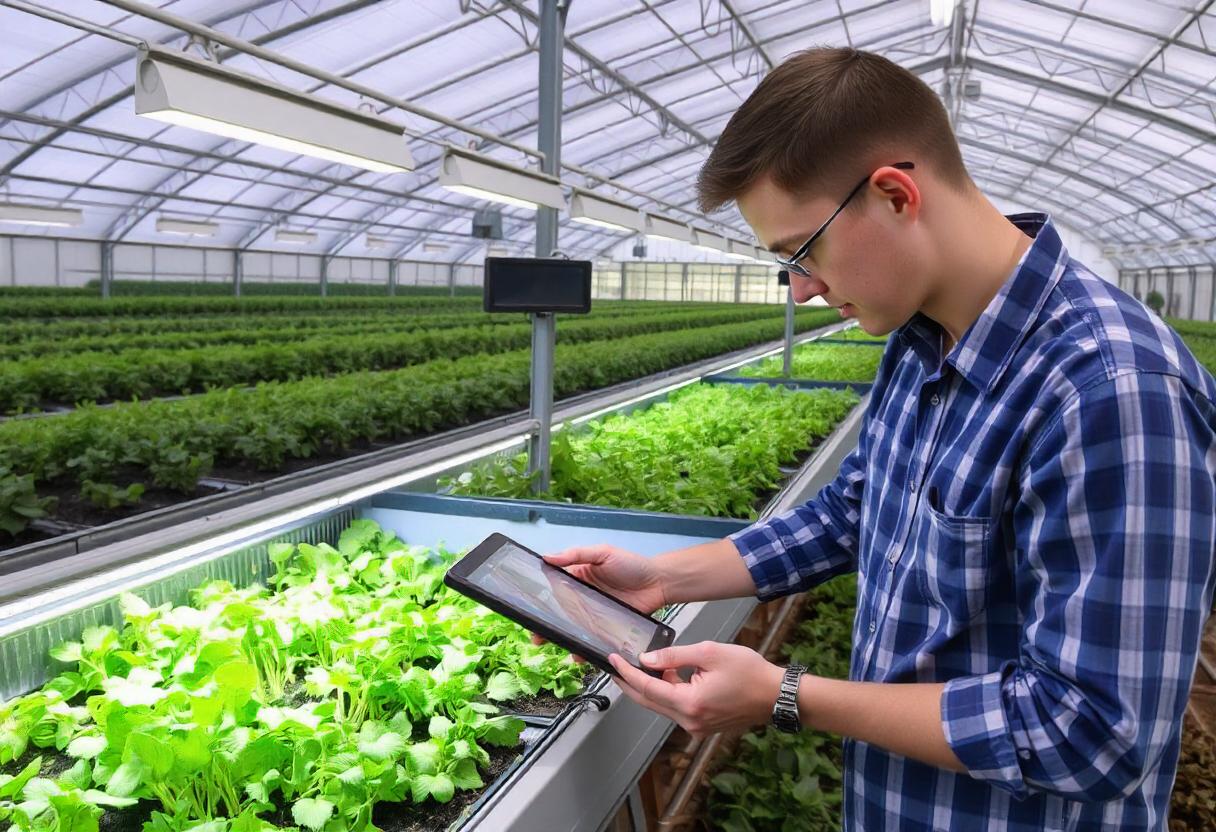
The integration of technology into agriculture is transforming the industry, making farming more efficient, sustainable, and productive. Advances in technology are addressing challenges such as resource management, crop yield, and environmental impact. Here’s a closer look at how technology is revolutionizing agriculture.
Precision Agriculture
Precision agriculture involves the use of technology to optimize field-level management regarding crop farming. It includes GPS-guided tractors, drones, and sensors to collect data on soil health, crop conditions, and weather patterns. This technology allows farmers to apply water, fertilizers, and pesticides more accurately, reducing waste and increasing efficiency.
Drones and Aerial Imaging
Drones equipped with cameras and sensors can capture high-resolution images of crops and fields. This aerial imaging provides valuable insights into crop health, pest infestations, and soil conditions. Farmers use this data to make informed decisions about irrigation, fertilization, and pest control, improving overall crop management.
Internet of Things (IoT)
The Internet of Things (IoT) in agriculture involves connecting various devices and sensors to a network, allowing them to communicate and share data. IoT applications in agriculture include smart irrigation systems, weather stations, and soil moisture sensors. These technologies help farmers monitor and manage their farms remotely, leading to more precise and timely interventions.
Automated Machinery
Automated machinery, such as self-driving tractors and harvesters, is becoming increasingly common in modern agriculture. These machines can perform tasks with minimal human intervention, increasing efficiency and reducing labor costs. Automated systems can also perform tasks with greater precision, leading to better crop yields and reduced resource usage.
Artificial Intelligence and Machine Learning
Artificial intelligence (AI) and machine learning are used to analyze vast amounts of agricultural data to predict trends and optimize farming practices. AI can assist in crop forecasting, soil analysis, and disease detection. Machine learning algorithms help in predicting crop yields and identifying patterns that can improve decision-making processes.
Smart Irrigation Systems
Smart irrigation systems use technology to optimize water usage in agriculture. These systems utilize sensors and weather data to determine the exact amount of water needed for crops, reducing water waste and ensuring crops receive the right amount of hydration. Some systems are automated and can adjust watering schedules based on real-time data.
Biotechnology and Genetic Engineering
Biotechnology and genetic engineering involve modifying the genetic makeup of plants and animals to improve their resistance to pests, diseases, and environmental stresses. These technologies can lead to the development of high-yield, disease-resistant crops and livestock, contributing to more sustainable agricultural practices.
Data Analytics
Data analytics in agriculture involves the collection and analysis of data from various sources, such as satellite imagery, sensors, and weather forecasts. By analyzing this data, farmers can gain insights into crop performance, soil health, and market trends. This information helps in making informed decisions that can enhance productivity and profitability.
Farm Management Software
Farm management software helps farmers plan, monitor, and manage their farming operations more efficiently. These software solutions provide tools for tracking crop growth, managing inventory, scheduling tasks, and analyzing financial performance. They enable farmers to streamline their operations and improve overall farm management.
Sustainable Agriculture Practices
Technology is also playing a crucial role in promoting sustainable agriculture. Innovations such as vertical farming, aquaponics, and hydroponics reduce the need for traditional soil-based farming and help in conserving water and space. These practices are aimed at reducing the environmental impact of agriculture while increasing food production.
Conclusion
Technology is driving a significant transformation in agriculture, making it more efficient, productive, and sustainable. From precision agriculture to smart irrigation and biotechnology, technological advancements are addressing many of the challenges faced by modern farming. As technology continues to evolve, it will likely play an even greater role in shaping the future of agriculture.